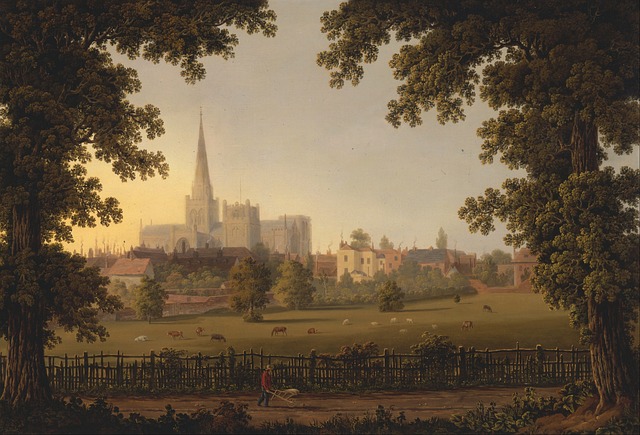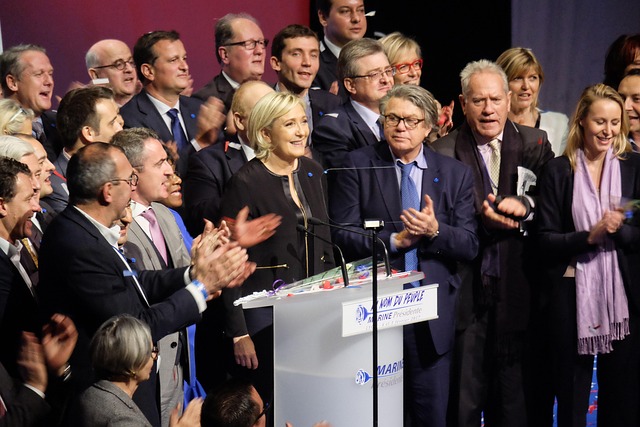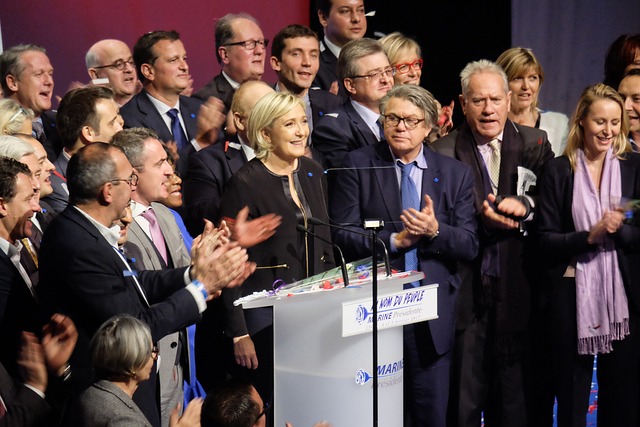The real estate sector is revolutionizing urban spaces by fostering innovation through adaptive property development. By creating mixed-use areas with unique architecture and sustainable practices, it attracts diverse professionals, spurring collaboration and technological growth. This evolution includes flexible design, modern amenities, co-working spaces, and smart infrastructure partnerships with tech startups, ultimately promoting eco-friendly communities, economic prosperity, and reduced carbon footprints.
In today’s digital age, communities are undergoing a transformative shift towards fostering innovative economies. This article delves into how real estate plays a pivotal role in shaping this evolution. We explore strategies for traditional practices to adapt and support emerging tech ecosystems, with case studies showcasing successful partnerships between developers and startups. Additionally, we discuss the power of community engagement in creating collaborative spaces, while examining the economic impacts and sustainability plans for innovation-driven neighborhoods. Discover how real estate can revolutionize urban landscapes and drive long-term growth.
The Role of Real Estate in Fostering Innovation

The real estate sector plays a pivotal role in fostering an innovation economy by shaping the physical landscape where ideas flourish. Adaptive and forward-thinking property development is essential for creating vibrant hubs that attract innovators, startups, and creative minds. Spaces designed to inspire collaboration and unique architectural concepts can become catalysts for technological advancements and entrepreneurial spirit. For instance, mixed-use developments combining residential, commercial, and recreational areas encourage diverse interactions, fostering a culture of innovation where professionals from various fields connect and collaborate.
Moreover, real estate has the power to enhance community engagement and support local innovation ecosystems. Strategic location choices can make spaces more accessible, promoting foot traffic and serendipitous encounters that spark creativity. Eco-friendly and sustainable buildings also contribute to a progressive community, attracting forward-thinking businesses and individuals who value environmental responsibility. This creates a positive feedback loop where innovative practices in real estate development inspire further creative thinking across various sectors.
– Exploring how traditional real estate practices can adapt to support innovative ecosystems

In the evolving landscape of urban development, traditional real estate practices are undergoing a transformative journey to embrace and support innovative ecosystems. The industry must adapt its strategies to create environments that foster creativity, collaboration, and cutting-edge business models. This shift involves rethinking how spaces are designed, leased, and managed to cater to the unique needs of startups, tech hubs, and creative industries. By integrating flexible layouts, modern amenities, and a focus on community building, real estate can become a catalyst for innovation.
Adapting to these changes means going beyond conventional property management. It involves creating vibrant, shared spaces that encourage networking and collaboration among diverse groups. This could include co-working spaces, incubators, and event venues designed to foster connections and spark new ideas. With the right approach, real estate can transition from being merely a location to a hub for progressive communities, driving economic growth and shaping the future of urban innovation.
– Case studies of successful partnerships between developers and tech/innovative startups

In the dynamic landscape of urban development, successful collaborations between real estate developers and tech startups have emerged as a powerful engine for innovation in the industry. These partnerships often involve integrating cutting-edge technologies into existing or new infrastructure, transforming cities into smart and sustainable hubs. For instance, consider the collaboration between a prominent developer and a startup specializing in green energy solutions. Together, they designed and constructed eco-friendly residential buildings equipped with advanced solar panel systems, intelligent energy management software, and shared renewable energy resources, setting a new benchmark for environmentally conscious living spaces.
Another compelling example involves a tech startup focusing on urban mobility solutions partnering with a major real estate conglomerate. They jointly developed mixed-use properties with dedicated spaces for electric vehicle charging stations, bike-sharing programs, and efficient public transportation networks. This integrated approach not only attracted tech-savvy residents but also significantly reduced carbon footprints in densely populated areas, showcasing the potential of such partnerships to drive sustainable urban innovation in the real estate sector.






